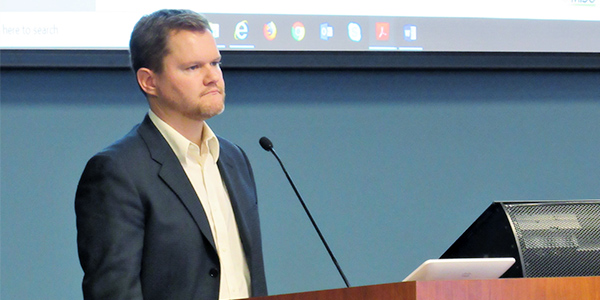By Amanda Durish Cook
CARMEL, Ind. — With spring maintenance season approaching, MISO is opening the floor to encourage stakeholders to offer ideas to address the growing divide between resource availability and need.
MISO is commencing work on longer-term solutions in its multiphase resource availability and need project, focusing on possible revisions to its loss-of-load expectation study and load-modifying resource (LMR) accreditation. It is also exploring further changes to outage scheduling, new seasonal capacity modeling and a possible development of a seasonal capacity auction. Discussions on more major changes will continue through 2019.
During a Jan. 17 Market Subcommittee meeting, Chair Megan Wisersky said the discussions are now “de rigueur” at the large public MISO stakeholder meetings.
MISO has already filed short-term Tariff changes with MISO to Address Growing Supply Shortage in New Year.)
The RTO will this month also file a proposal requiring resources to provide 120 days’ notice for planned outages, with only one “limited adjustment” to the outage schedule allowed up to 60 days before it begins. Those outages would not be permitted during predefined periods with expected low margins.
MISO had planned by April 1 to implement a firm policy of considering outages scheduled during low-margin periods as forced, impacting a resource’s accreditation. However, the RTO is now pledging to grant an exemption to outages and derates starting between April 15 and July 29 if resource owners provide two weeks’ notice and “adequate margin is projected when requests are scheduled.” The revision comes after several stakeholders this month called for less stringent rules. (See Stakeholders Press MISO for Flexibility in Outage Proposal.)
MISO market design adviser Dustin Grethen said the Market Subcommittee should now shift focus to what’s needed to meaningfully improve price signals to spur more available and flexible supply. MISO may make at least two more FERC filings, one late this year focused on resource adequacy — if needed — and one in the first half of 2020 focused on new market mechanisms.
“The start of the 2016 planning year, we saw energy offers significantly drop. We used to see about 8 GW more in energy offers,” Grethen said, adding that since that time, MISO has used less traditional sources such as wind power and reserves to cover its load and supply requirements.
Grethen said the drop coincided with EPA’s rollout of the Mercury and Air Toxics Standards, which forced many coal-fired generators into retirement.
Some stakeholders debated whether MISO should extend its official calendar summer season, pointing out that the latest maximum generation event took place in mid-September, on a blisteringly hot day but still outside of what the RTO considers summer. Outside of MISO’s peak summer season, LMRs are not required to respond to emergencies.
MISO staff said the event technically occurred in what the RTO considers fall, despite the heat.
“Timing is everything,” Customized Energy Solutions’ David Sapper commented wryly.
Sapper urged MISO to incentivize more supply by staying away from solutions that include generator penalties. “I think you’ve heard from stakeholders that we want more carrots than sticks,” he said.
CES’ Ted Kuhn asked why MISO’s LOLE study doesn’t predict likely emergency frequency when the study projects other system conditions. He said the LOLE study could be redesigned to show when and where MISO will likely face tight operating conditions.
“When is the number of emergencies more than what we really plan on?” he asked.
Sapper asked if MISO might revive discarded market ideas, such as financially binding multiday commitments.
“I think a lot of that’s to be determined,” Grethen said. He added that any solution that MISO recommends will be supported by studies and simulations.
Grethen said he would return in February for a more in-depth discussion on long-term supply fixes and a formal request for solution submissions.





